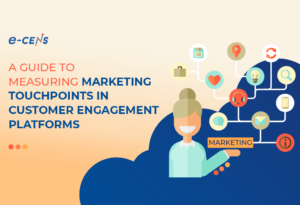As a data-driven marketer, it’s crucial to stay up-to-date with the latest regulations that impact your industry. One such regulation that requires your attention is the Digital Markets Act (DMA).
In this article, we dive deep into the aspects of DMA that are relevant to digital marketing and data analytics teams. We’ll explore the challenges it poses and highlight the opportunities it presents, all while providing practical solutions that help you navigate the regulatory change.
Understanding the Digital Markets Act and its implications for data-driven marketers
The DMA is a comprehensive regulatory framework aimed at promoting fair and competitive digital markets within the European Union. It addresses various aspects of digital markets, including online platforms, digital advertising, and data privacy.
For data-driven marketers, compliance with the DMA is essential to ensure the lawful and ethical use of customer data. Let’s delve deeper into the DMA’s key provisions that directly impact your digital marketing and analytics activities and best-practice solutions to stay compliant.
DMA vs GDPR
Under the provisions of the General Data Protection Regulation (GDPR), the responsibility for the collection and processing of personal data falls on the shoulders of website proprietors and business managers. However, with the introduction of the Digital Markets Act (DMA), this duty is shifted towards major technology enterprises, which the European Commission identifies as gatekeepers. This move aims to stimulate equitable competition and protect the privacy of users.
Who are the gatekeepers under the Digital Markets Act
The term “gatekeepers” refers to the major technology firms that the European Commission (EC) has identified under the DMA for their pivotal role in digital markets, through the operation of one or more core platform services (CPS).
The six companies currently designated as gatekeepers by the European Commission include five US-based and one Chinese-based company. They all have European operations and users, but none is headquartered in the EU or UK. The gatekeepers are:
- Microsoft (owner of LinkedIn and Windows PC OS)
- Meta (owner of Facebook, Instagram, WhatsApp, and others)
- Alphabet (owner of Google, YouTube, and Android)
- ByteDance (owner of TikTok)
- Amazon (owner of Amazon Marketplace)
- Apple (owner of iOS and the App Store)
The criteria for being designated as a gatekeeper include having a significant impact on the internal market, serving as a critical gateway for business users to reach end users, and enjoying an entrenched and durable position in their operations, which could potentially hinder competition.
The CPS are also identified by the EC due to their audience size, volume of data generated and processed, and influence on digital markets and consumers. The 22 CPS include web browsers, social media platforms, voice assistants, search engines, operating systems, video platforms, and more.
The exact list of companies classified as gatekeepers can evolve in the future.
Gatekeeper obligations under the Digital Markets Act
Gatekeepers, as defined by the DMA, are required to secure explicit approval from European citizens for the collection and utilization of their personal data across the companies’ primary platform services (e.g., advertising, searching). This is a critical step in ensuring the protection of user information within these digital environments.
Should gatekeepers fail to adhere to the DMA’s mandates, they may face hefty penalties. Specifically, fines can reach up to 10% of the gatekeeper’s global annual revenue, or even up to 20% for repeated offenses.
To mitigate the risk of these significant financial penalties, such companies might introduce more stringent consent requirements for their users and partners, including both consumers and third-party businesses. Given that a vast number of businesses depend on these gatekeepers for access to large audiences, data analytics, and revenue generation, the implications of these additional requirements are significant.
Navigating data privacy and consent management
Data privacy lies at the heart of the DMA. As a data-driven marketer, you need to be well-versed in data privacy regulations and practices. After extensive market research, we highly recommend Usercentrics as the leading choice for web and app consent management platforms (CMPs), as it helps you achieve compliance with the DMA’s requirements as well as build trust with your audience.
Why Usercentrics CMP is the best to get you ready for the Digital Markets Act
Usercentrics is a highly regarded consent management platform (CMP) that offers numerous technical benefits for marketers and data professionals. With Usercentrics CMP, you can obtain, manage, and document user consent, ensuring compliance with data privacy regulations like GDPR. The platform provides user-friendly customization options, allowing you to tailor consent processes to match your specific needs.
How to implement Usercentrics CMP to meet DMA requirements
Implementing Usercentrics is a straightforward process. You can easily integrate the CMP into your websites or mobile applications using their provided SDKs and APIs. Once implemented, you can customize the consent banners, configure cookie settings, and manage consent preferences through the Usercentrics dashboard.
Also, watch this demo for a more detailed walkthrough of Usercentrics consent solution for websites and apps.
Upcoming
Next in this series, we cover how to craft an effective data strategy and how to develop a measurement strategy…




